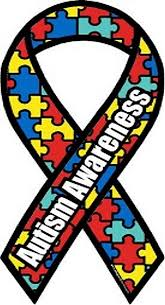Idag är det världsautismdagen. Dagen till ära har både svensk och internationell media uppmärksammat hur man på senare år sett en kraftig ökning av antalet personer som diagnosticerats med autism eller andra autismspektrumtillstånd (ASD). Orsakerna till denna ökning är inte säkerställd men man tror att det framför allt handlar om att man har fått en större medvetenhet om dessa tillstånd.
Något som inte ligger bakom denna statistik är de allmänna vaccinationsprogrammen för barn. År 1998 publicerade tidskriften Lancet resultat från en studie som visade att MPR-vaccin (mot mässling, påssjuka och röda hund) ökade risken för autism. År 2004 offentliggjorde Lancet att de drog tillbaka denna studie på grund av att resultaten hade visat sig vara förfalskade. Trots detta är det fortfarande vissa personer som tror att det finns ett samband mellan autism och MPR-vaccin.
Anti-vaccinationsrörelsen pratar mycket om hur vinstintressena gör att vaccintillverkarna korrumperas och försöker mörka vaccinens bieffekter. Visst kan vinstintressen korrumpera men både vaccin- och läkemedelsbranschen är extremt granskad och reglerad av myndigheter. Ironiskt nog hade forskaren bakom fuskartikeln i Lancet tagit emot pengar från advokater som representerade föräldrar till barn med autism och som försökte få skadestånd från vaccinationstillverkare.
Att använda vinstintressen som argument mot vaccinationer är således ganska ologiskt eftersom det även finns de som tjänar pengar på att få folk att tro att vaccin är skadligt för folkhälsan.
World Autism Day, April 2
Today, it is the annual World Autism Awareness Day. Due to this, both Swedish and international media report on how the number of people diagnosed with autism or other autism spectrum disorders (ASD) have sharply increased in recent years. The reason for this increase is largely unknown, but it is believed that this is primarily due to the increased awareness of these conditions.
Something that is not behind the statistics are the public vaccination programs for children. In 1998, the journal Lancet published the results of a study that showed that MMR vaccine (measles, mumps and rubella ) increased the risk of autism. In 2004, Lancet publicly withdrew this study because the results were fraudulent. Despite this, there are still people who believe that there is a link between autism and MMR vaccine .
The anti-vaccination movement often mention how the pursuit of profit will allow vaccine manufacturers corrupt and try to hide vaccine side effects. Sure, profit can corrupt but the vaccine and pharmaceutical industry is extremely audited and regulated by the authorities. Ironically, the researcher behind the fraudulent article in Lancet received money from lawyers representing parents of children with autism who were trying to get reparation from the vaccine manufacturers.
Using profitable corruption as an argument against vaccinations is thus irrational given that there also are those who are making money on getting people to believe that the vaccine is harmful to public health.
